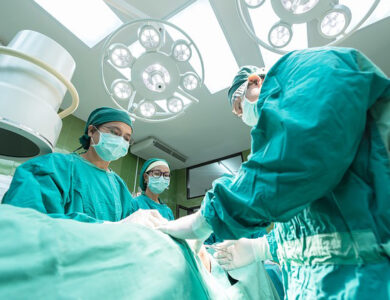Couple’s facing a problem of infertility, should be routinely screened for varicocele: Doctors

Varicoceles can significantly impact male fertility, and gaining a comprehensive understanding of this condition is crucial for those seeking solutions. In this article, we delve into the causes, symptoms, and treatment options for varicoceles to provide valuable insights for individuals navigating this challenge.
What are Varicoceles?
Varicoceles are enlarged veins within the scrotum, resembling varicose veins commonly found in the legs. These veins may disrupt normal blood flow, leading to increased testicular temperature and potential damage to sperm production.
Causes of Varicoceles
Understanding the causes of varicoceles is fundamental to addressing this condition effectively. While the exact origin can vary, key factors include:
1. Faulty Valves
The malfunctioning of valves within the spermatic cord veins can lead to blood pooling and vein enlargement.
2. Genetic Predisposition
A genetic predisposition to weakened vein walls or faulty valves may increase the likelihood of developing varicoceles.
3. Nutritional Factors
Poor nutrition and lifestyle choices can contribute to the weakening of veins, exacerbating the development of varicoceles.
Identifying Varicoceles: Symptoms
Recognizing the symptoms of varicoceles is crucial for early detection and intervention. Common indicators include:
1. Scrotal Swelling
Enlargement of the veins can result in noticeable swelling of the scrotum, often described as feeling like a bag of worms.
2. Testicular Discomfort
Discomfort or a dull pain in the testicles may indicate the presence of varicoceles, especially after prolonged standing or physical exertion.
Diagnosing Varicoceles
Accurate diagnosis is pivotal for devising an appropriate treatment plan. Medical professionals typically employ a combination of physical examinations, ultrasound imaging, and other diagnostic tools to confirm varicocele presence and severity.
Treatment Options
Addressing varicoceles can involve various approaches, tailored to the severity of the condition:
1. Watchful Waiting
For mild cases, where symptoms are minimal, a “watch and wait” strategy may be employed, with regular monitoring to assess any progression.
2. Lifestyle Changes
Implementing lifestyle modifications, including a balanced diet and regular exercise, can contribute to overall vein health and potentially alleviate varicocele symptoms.
3. Surgical Intervention
In more severe cases, surgical procedures like varicocelectomy may be recommended to repair or redirect affected veins, improving blood flow and reducing symptoms.
Varicoceles demand a nuanced understanding of causes, symptoms, and treatment options.








